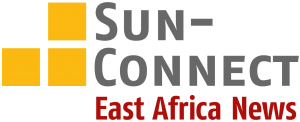
Sun-Connect East Africa’s survey of East African Solar companies (20.04.-30.04.2020) has clearly shown: Local SME need a customized solution that consists of several components. Repayable grants and grants are in the foreground, while soft loans (e.g. to reduce existing loan burdens with costly conditions) can only be considered after that.
It is obvious that investment companies or banks are not the right partners when it comes to designing a Relief Fund for local SMEs. What is needed are skills and resources that go beyond the capabilities of pure investment managers. International organisations such as Lighting Global or SE4All are called upon to prove that they also strive for those SMEs in the industry that form the bottom of our industry.
Sun-Connect East Africa survey
In order to develop an relief instrument tailored to the needs of African SMEs in the off-grid sector, it is first necessary to precisely identify the needs. Sun-Connect has therefore conducted a survey of East African solar companies, in which dozens of companies from five countries participated. Below is summary of distribution of responses by country:
The results of our survey provide clear indications of what support might look like. Here are the three most important findings:
1. The greatest assets in each company are the people
An overwhelming majority (96%) of the companies stated that financial support to finance employee salaries (40% subsidy over 6 months) would be of great help to them.
Such support would be inspired by the payment of short-time allowances, which are widespread in Europe – with great economic success. This means a temporary subsidy of the salaries in order to avoid having to lay off employees and send them into unemployment. But also in order not to lose the most important asset of the company and to be able to restart immediately after the COVID-19 crisis.
What is the likely amoung of funds are we are talking about here? A 40% coverage of the salaries over a period of six months would in most cases result in a subsidy of between USD 1,000 and USD 5,000 (depending on the size of the company). This is actually a manageable amount to maintain jobs and the SME’s ability to sustain operations during the Covid-19 crisis.
2. Important for maintaining business activity: customers and orders
The second most important support, according to the survey responses, is to enable business activity, with two options named equally strong, each with 44%:
- Provision of subsidised products to make it easier for end customers to decide to buy a solar system by reduced prices. Here, international manufacturers in particular are called upon to consider a price reduction, which is ultimately also useful for their own sales numbers in this time of crisis.
But what is really today? Many manufacturers are increasing their prices amid COVID-19! - Awarding contracts to local SMEs, for example from international NGOs to implement projects. This possibility of business support is often neglected. But in this way two goals can be achieved at the same time:The NGO implements an aid project (e.g. solar energy in schools or health stations) and at the same time enables a local SME to generate sales and secure jobs.
3. Financing
In third place is direct financial support, for example through a soft loan of USD 20k over two years. It is also impressive that one third of the companies stated that they would like to receive support in the form of improved conditions for existing loans (e.g. restructuring or deferral of payment).
This figure is a clear indication that SMEs are unlikely to benefit from traditional Relief Fund resources due to their existing credit burden. Financial loans are hardly helpful for small companies, as they run the risk of not being able to repay the loan due to their low profitability. As a result, the current crisis would simply be postponed until later or extended indefinitely. Morever, eligibility criteria for such funds tend to disqualify the participation of typical SMEs, yet they remain the most vulnerable and needy, before, during and post-crisis events such as Covid-19.
In this survey, other support services such as remote technical assistance or the reduction of PAYG operating costs (7% each) were seen as significantly less relevant.
Urgent call to Lighting Africa, GOGLA and SE4All
International organisations such as Lighting Africa, GOGLA or SE4All are now urgently called upon to set up a Relief Fund to meet the special needs of local SMEs.
SMEs form the backbone of the off-grid industry. Especially in times of crisis, the three organisations mentioned above are obliged to prove that they also strive for those SMEs in the industry that form the bottom of our industry.
